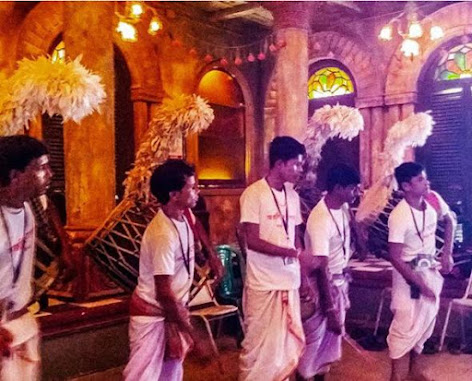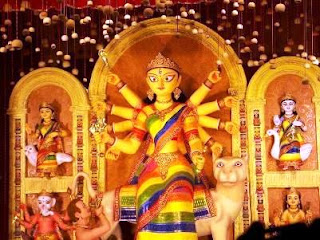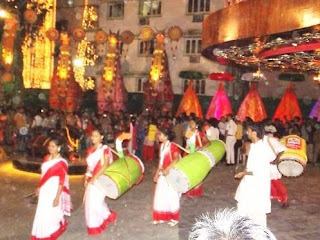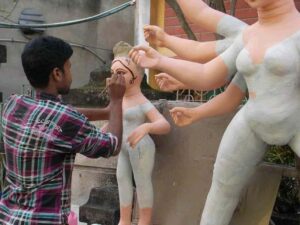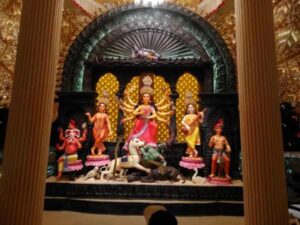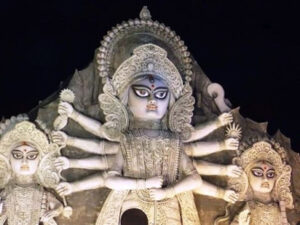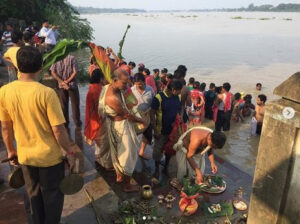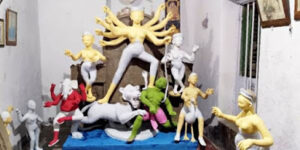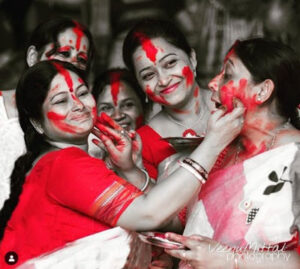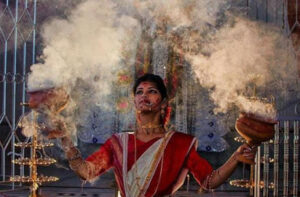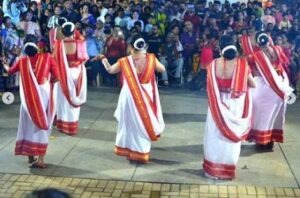The sound of Dhak beats for Bengalis means Durga Puja, their biggest festival, is here. In Kolkata, the capital of the Indian state of West Bengal, the whole city becomes part of this festivity. The Bengali Dhaki amplifies this festive mood. The Durga Puja celebration goes on for five days in the autumn season. Using Hindu rituals and practices, devotees worship Goddess Durga. The celebration is resonated by the different beats of Dhak played by the Dhaki. These traditional drummers from Bengal are called Dhakis, and their instrument Dhak.
These drummers generally hail from Malda, Medinipur, Purulia, Nadia, and the Bankura district of rural Bengal. Most of the Bengali Dhaki belong to below-the poverty line families and struggle to meet their daily needs. This skill is mostly hereditary, and some families are in this profession for five generations.
During the celebrations, they come to the city of Kolkata. They garner in front of the Sealdah railway station, located on the outskirts of Kolkata. They showcase their skills to Puja committee members, and after price negotiation, they are taken to the Puja Pandals where they play the dhak for the next five days. Kolkata hosts around three thousand Puja Pandals. Some who have contacts, also visit Pune and Delhi. Often they are paid very little for this job, and for the rest of the year, they have to work as daily wage laborers to support their families.
Dhak, the drum, is prepared from mango wood and goat/cow skin. More the age of the Mango tree, the sound will be better. It takes almost 2-3 months to prepare a Dhak. But with new generation machines, dhak factories have started, which produce them in a week. Dhak is played using two thin sticks called kathis. For Dhak’s decoration, bird feathers and velvet clothes are used.
A normal dhak weighs around 15-17 Kgs. Dhaki continuously moves and dances with the beats, so it requires a lot of energy to play the Dhak.
Gokul Chandra Das, who also gives stage performance internationally, is the most celebrated Dhaki of Bengal. A few years back, he started providing training to the women of his family and village. Women use low-weight dhaks. Now, they have also become part of this artistic profession, and they are in high demand. These Ladies Dhaki are receiving appreciation from the audience.
While during the festival, drummers enthrall the devotees with their rhythmic beats, they sacrifice their happiness and stay away from the family. Attempts are being made to bring back the glory of this popular art. Every year dhaki Competitions backed by corporates are organized, and a cash prize is awarded to the best drummers. Some new-age drummers are also collaborating with fusion bands. Highly-skilled dhaki also receives invitations from the Durga Puja celebration in Europe and the USA. Still, it’s a long way to go for this silently dying art.
